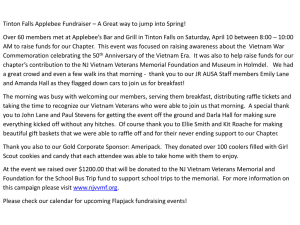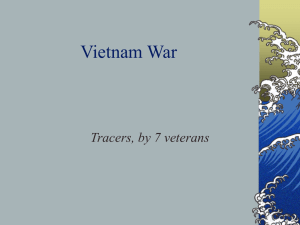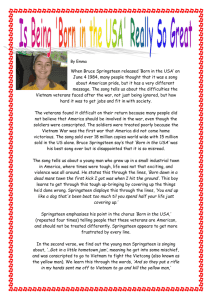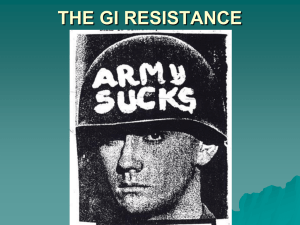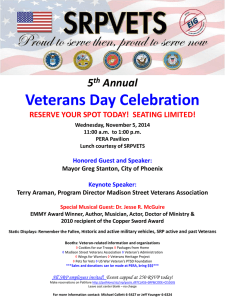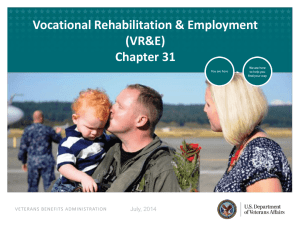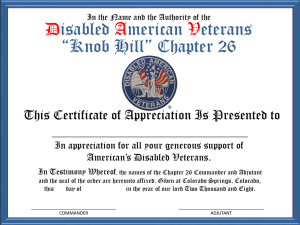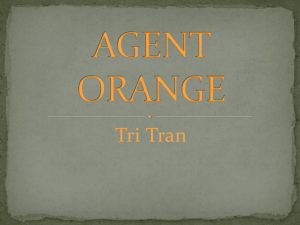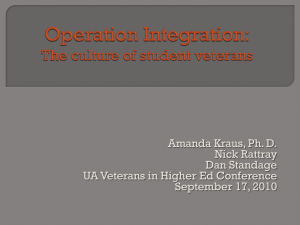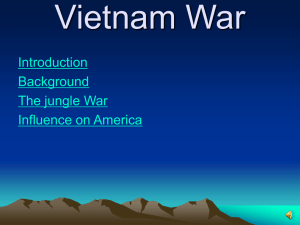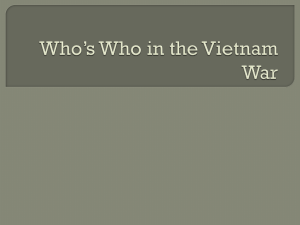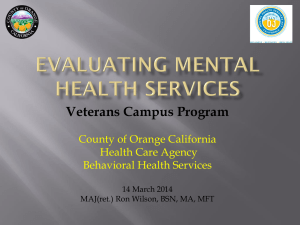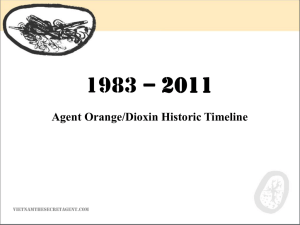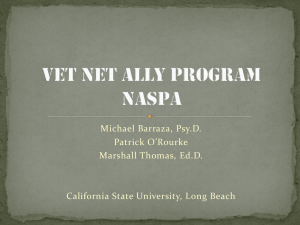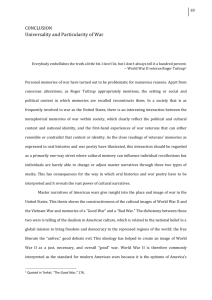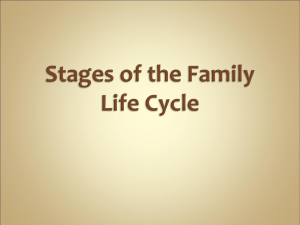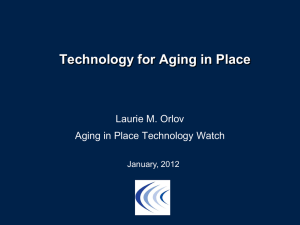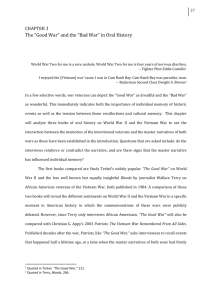PPT
advertisement
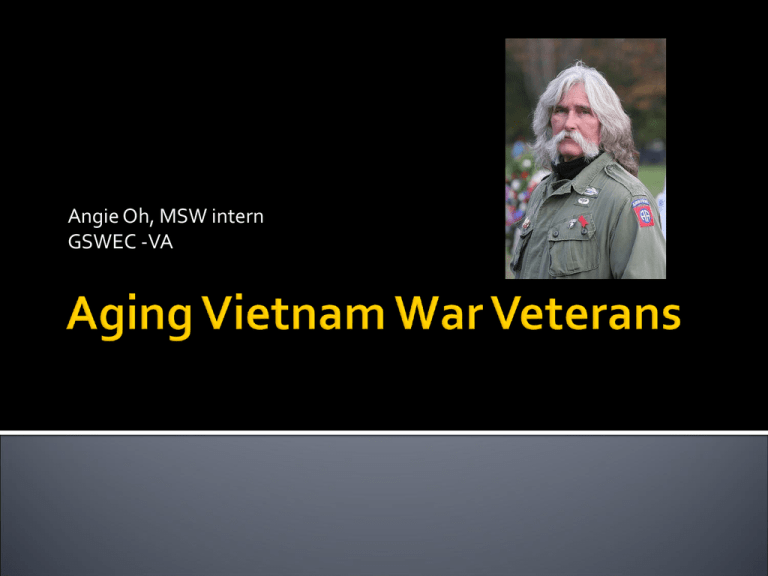
Angie Oh, MSW intern GSWEC -VA Purpose Methods Summary of interviews Practical advice Most Vietnam Veterans are over 60 years old and make up almost 10% of their generation. Part of the baby boomer population Current and future geriatric social workers should be educated on the aging Vietnam veteran population because they will most likely encounter them in their work. Some knowledge and cultural competency in this area can help foster healthy client-worker relationships Whenever we learn about cultural competency, we should have cultural humility The purpose of this is not to foster any existing stereotypes about Vietnam veterans This presentation does not represent the official opinions of the VA or Vet Center In-person and telephone interviews with 6 clinicians from the VA and 4 clinicians from the Vet Center ▪ 6 social workers, 3 psychologists and 1 psychiatrist ▪ Average length of years worked with veterans: 13.8 years ▪ Chosen through a combination of snowball and convenience sample Four open-ended questions were asked This PowerPoint presentation was made 1. How are Vietnam veterans different from other veterans? 2. How have Vietnam veterans changed as they aged? 3. What are some common issues and themes you see in your sessions with aging Vietnam veterans? 4. What advice would you give to geriatric social work students when working with this population? Cultural upheaval and unstable homeland Uniqueness of the Vietnam War How they were treated when they got back Agent Orange PTSD Family life Loss of important political figures John F. Kennedy, Martin Luther King Jr., Malcolm X Large social movements Women’s movement, Civil Rights Movement, etc. Unstable homeland Counterculture, number of traditional families were decreasing, etc. “Go to jail or go to Vietnam” How do these things affect their aging process? Long Undeclared Political High-casualty Most unpopular war No closure; unresolved feelings First televised war How do these things affect their aging process? People hated the war and hated the soldiers Called “baby killers” Spat at and yelled at Poor treatment from the VA Led to the formation of the Vet Center There were a lot of jobs-went to work right away How do these things affect their aging process? Many Vietnam veterans were exposed to Agent Orange (20 million gallons sprayed) Paranoia About the government ▪ Did the government know about the harm it could cause? About their health ▪ Agent Orange is connected to Type II Diabetes, cancer, heart problems, etc. ▪ “When will be my last day” How do these things affect their aging process? More Vietnam veterans are seeking treatment for PTSD at the VA and Vet Center Delayed onset More outreach from VA/Vet Center Compensation Retirement How do these things affect their aging process? Boundary problems with families Children & grandchildren are living with them Veterans feel guilty about the times they were not available or good to their families in the past ▪ Life review ▪ Some children are taking advantage of this Caregiving responsibilities Taking care of their grandchildren Taking care of their elderly parents How do these things affect their aging process? Each veterans’ experience is unique; learn from them. They are the expert. Educate yourself about general history/geography of the Vietnam War If you don’t know something, ask them. Don’t pretend you know something Allow extra time to build a relationship and get information (institutional transference) Learn key principles of how to work with veterans in general Help them feel valuable and honor them for their service. Respect them. Find creative ways to help them realize their strengths Do not take things personally Use military concepts in psychoeducation Do not be judgmental and beware of stereotyping Be aware of survivors guilt
